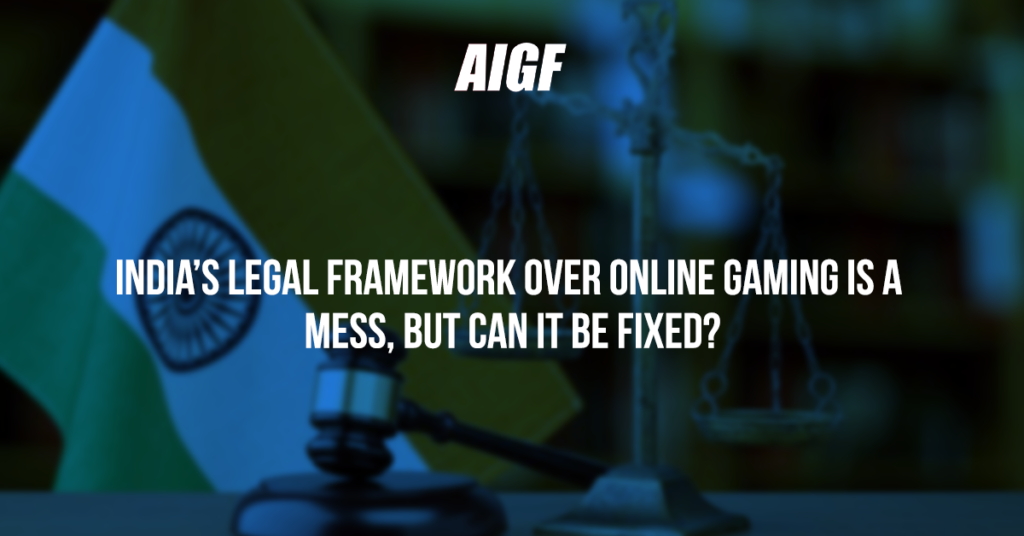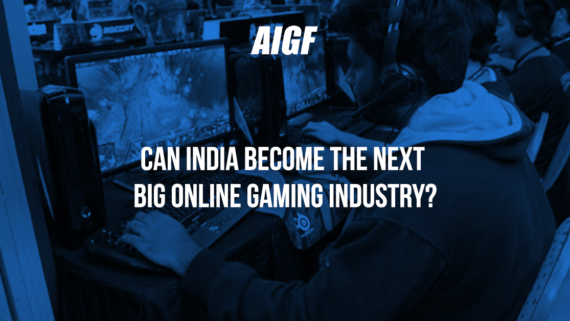Both the All India Gaming Federation (AIGF), the pinnacle gaming industry body over esports, online fantasy sports, poker, rummy, and casual games genres, and the Federation of Indian Fantasy Sports (FIFS), involving fantasy sports administrators, have given books of self-guideline rules for gaming platforms called compliance charters, planned to fabricate a practical and safe gaming climate in India.
India’s Legal Framework Over Online Gaming Is A Mess, But Can It Be Fixed?
Self-Regulation Charters are in Place, but are They Consistent and Thorough?
Working under the state of an absence of legitimate and comprehensive guidelines on online gaming in India, the nation’s significant gaming industry bodies have attempted to foster their own self-guideline charters for organization members to abide by, looking to accomplish sustainable progress through trustworthiness. Regardless of good intentions, the gaming industry’s consistency charter suffers from a variety of shortcomings, including inconsistency and thoroughness.
Both the All India Gaming Federation (AIGF), the pinnacle gaming industry body over esports, online fantasy sports, poker, rummy, and casual games genres, and the Federation of Indian Fantasy Sports (FIFS), involving fantasy sports administrators, have given books of self-guideline rules for gaming platforms called compliance charters, planned to fabricate a practical and safe gaming climate in India.
The two charters are not all that strong as they apply just to the members of AIGF or FIFS separately, and a fast consistency check shows various inconsistencies that can cause ambiguities. While the two associations require their members to give games only to local people, AIGF confines gaming platform administrations to “Indian residents” following the definitions given by the Foreign Exchange Management Act (FEMA), and FIFS limits offers to “Indian users,” which is an ambiguous term.
Simultaneously, FIFS complies with FEMA rules for disallowance of payments in foreign currencies and utilizes international credit cards, while AIGF vaguely confines cross-border liquidity. Irregularities and lack of the two compliance charters can be seen in various other key regions, including rules for taking care of personal information and confidential data, geo-blocking instruments and user localization, member personnel participation restrictions, grievance redressal mechanisms, as well as in envisaged audit tools and consequences for compliance breaches.
India’s Statutory Framework for Gaming Remains Largely Archaic and Complex
An attempt was made in 2018 for a contemporary regulation mechanism over the online gaming sector to be implemented in India when senior Congress pioneer and MP Shashi Tharoor postponed the draught Sports (Online Gaming And Prevention Of Fraud) Bill in the Lok Sabha. The bill didn’t pass adoption, and this left desi sports bettors, online fantasy sports enthusiasts, and individuals who play online casino games in a maze of frequently archaic and inconsistent public and state-level legal principles and limitations.
The significant regulation that deals with gaming in India are the Victorian-period Public Gambling Act of 1867, which was “to accommodate the discipline of public betting and the keeping of common gaming houses.” The action centers around actual gaming houses and the trading of money while betting, and incorporates nothing about online gaming and the electronic transfer of funds.
In Section 12, the Public Gaming Act explicitly avoids any “games of mere skill” from the meaning of betting and the connected prohibitions. In the long term, the importance of the expression is vague and challenging to define definitively, even though various decisions of India’s Supreme Court and different High Courts have looked to track down an answer. For instance, very much the same famous game, poker, has been sorted as a game of skill by the High Courts of Karnataka and Kolkata, while the Gujarat HC has put it under the “game of chance” heading.
The Constitution gives powers to states to execute their regulations concerning games of chance, and various states have exercised this choice. While Goa and Sikkim have permitted authorized administrators to run casinos inside their regions, various states have decided to enforce prohibitions on gaming.
The latest case is in Karnataka, where an October 2021 amendment to the state’s Police Act included a restriction for all games, including games of skill when a gamble of losing money is available, yet permitted wagering on horse races and online lottery purchases.
The High Court of Karnataka struck down the sweeping restriction on gaming on February 14 as contradictory to the Constitution for ignoring the difference between games of skill and games of chance. The choice followed comparable decisions by the High Courts of Madras and Kerala, striking down gaming boycotts in their states.
India Does Not Need to Invent Hot Water
The current lawful circumstances encompassing gaming in India appear to be muddled beyond repair, yet the nation doesn’t have to elaborate on a few exceptionally complex answers to fix it. It would be to the point of review and take into account what different nations have previously done in the field of guidelines and permitting over gaming and would execute a determination of measures that are generally appropriate to Indian society.
With the development of the internet and the influx of seaward gaming platforms from one side of the planet to the other, various newly created economies like Sweden, Denmark, France, and the UK have chosen to execute guidelines over the sector as opposed to embarking on pointless fights to boycott them.
Aside from requiring gaming organizations to pay taxes in the relevant country and adapting to anti-tax evasion rules, the focus on gambling insurance is a component shared by contemporary regulatory approaches. Different responsible gaming systems have been set up to bring down the societal expense of betting and wagering by safeguarding clients from related risks like addictions, financial losses, privacy breaches, fraud, and odds-tampering.
The execution of a progressive administrative system by India, inspired by the worldwide practice and joined with the foundation of a National Gaming Authority to direct the sector and classify games into skill-based and chance-based sections, can do a great deal to help the domestic industry and guarantee a protected gaming climate for Indians.
Credit: Newsd











Comments
Comments are closed.